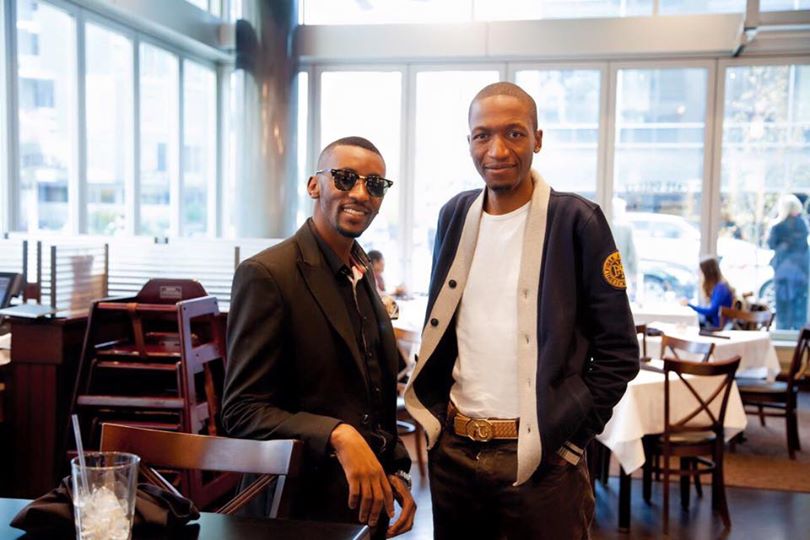BY SONGEZO ZIBI
WHILE the attentions of the South African public were occupied by events in Parliament, in Ferguson, Missouri and elsewhere, the ousted former president of the republic, Thabo Mbeki, penned a long Dear John letter to the Mail & Guardian. He is very unhappy and, in his eloquent style, went on to explain why, as preordained, he was right and the Mail & Guardian was wrong to accuse him of conniving to subvert democracy in Zimbabwe during the 2002 presidential elections.
The weekly has been fighting a protracted legal battle to lay its hands on a report handed over to Mr Mbeki by judges Dikgang Moseneke and Sisi Khampepe. Both are now respected members of the Constitutional Court. Mr Mbeki, like his successors President Jacob Zuma and caretaker president Kgalema Motlanthe, decided it should never see the light of day.
The Constitutional Court finally decided they were wrong, and the Mail & Guardian was correct to say that the 27-page document was public property. During the course of the litigation, important clarifications by the courts were made, in particular in the earlier judgment by the Constitutional Court. In it, former chief justice Sandile Ngcobo emphasised that government information must be regarded as public unless the government has compelling reasons why a piece of information should not be publicised.
Judge Ngcobo didn’t reach this conclusion on spurious grounds. The main reason he gave was that it is not possible for citizens to make informed political choices if the information that should help them is kept away from them.
Nonetheless, he and the majority of the judges sent the matter back to the lower courts for a “judicial peek” at the report’s contents to determine if our naïve, brittle and intellectually challenged minds could handle its contents.
Of course, this fell on deaf ears as the same government went on to dream up something called the Protection of State Information Bill, which will make life decidedly uncomfortable for whistle-blowers and journalists — but I digress.
In his missive, Mr Mbeki sought to justify both his decisions to bury the report and to ignore its conclusions. He really is welcome to conclude whatever he wishes, including whether or not HIV causes AIDS. We also enjoy the same prerogative as he, and on this occasion the courts have ensured that we can exercise it with a little bit more information than he wanted us to.
I am certain that the former president, like me, is watching events in Zimbabwe with very keen interest. That country’s first lady, Grace Mugabe, has decided to enter formal politics and immediately made a huge impression.
Mrs Mugabe has not wasted time learning the ropes, and set about assassinating the characters andpolitical careers of people considered her opponents as she assumes her rightful place as heir to the great liberator.
In her crosshairs has been the country’s vice-president, Joice Mujuru. In the past few weeks the first lady has gone as far as viciously attacking the propriety of her dress sense, including the attractiveness or otherwise of the thighs she accused Mrs Mujuru of displaying.
Mrs Mujuru must have had a rare lapse. I have never seen her in anything other than what we consider a normal length skirt or dress. Many Zimbabweans also can’t recall this specific incident, but since the first lady raised it, then it must be true and, whatever the real length of the dress in question, it is now officially inappropriate.
The Zanu (PF) constitution has now been amended to allow the infinitely sage Mr Mugabe to directly appoint one of his deputies. Also, things have not been looking good lately for one Jabulani Sibanda, head of that country’s war veterans association. He landed in jail for “undermining the authority of the president”.
Mr Sibanda landed himself in trouble by refusing to attend rallies Mrs Mugabe has held since September. He is alleged to have said he wouldn’t attend the rallies until Mr Mugabe’s supporters stopped chanting anti-Mujuru slogans and said “a coup both in the boardroom and the bedroom” was being staged.
Mr Sibanda is lucky to end up in jail. Mrs Mujuru’s husband, the retired army chief Gen Solomon Mujuru, wasn’t so lucky. He died in mysterious circumstances on his farm involving bullet casings and a fire that gutted his house a few years ago.
Fast forward a few years, and Zimbabwe will hold presidential elections. A lot of water will have passed under the bridge by then. Mrs Mujuru and others will have been seen off, possibly in jail or embattled in the courts on trumped-up charges. We have seen it before and we saw it then, including the gratuitous violence visited upon Movement for Democratic Change supporters while the police watched or joined in.
The elimination of opponents by manipulating party processes, using state institutions to marginalise or the police to jail them on spurious charges cannot be disregarded in evaluating the outcome of an election years hence.
No single election is ever the sum total of the credibility of a democracy. The space for a free and fair election has to exist long before an election in order to create the climate for free choice. Mr Mbeki clearly differs, but that’s his view. He should let us have ours too.BD






